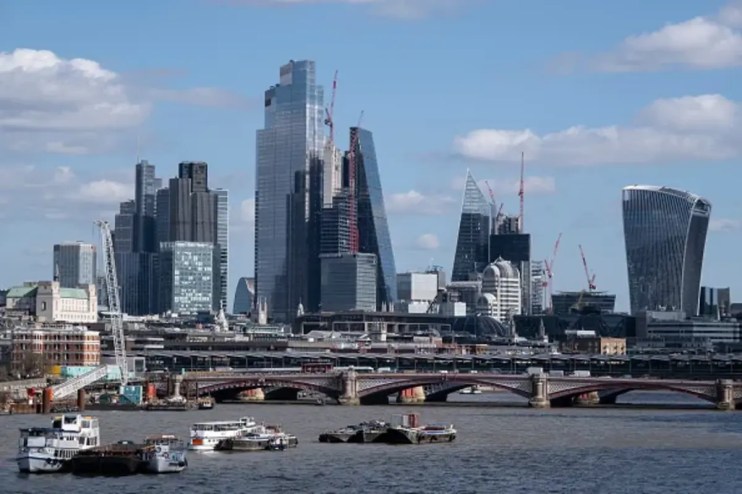Why we should be cautious about rising business confidence

A number of surveys have said that business confidence in the UK is on the up and the economy is set to rebound. But dig a little deeper, the news might not quite be as rosy as it sounds, Chris Dorrell writes
There’s a growing sense of optimism about the short-term outlook for the UK economy.
Inflation will likely reach two per cent in April, having come down from a peak of over 11 per cent, paving the way for the Bank of England to cut interest rates this summer.
The fall in inflation has been achieved without any significant increase in unemployment, meaning consumers have seen an increase in real income. Analysts at Pantheon Macroeconomics forecast that real disposable income could rebound 2.2 per cent in 2024.
All of this has been reflected in the growth figures, with the economy growing 0.4 per cent across the first quarter. Business surveys suggest that this trend is set to continue.
Looking further ahead, other surveys suggest that corporate and consumer confidence are both on the up, promising further progress ahead.
Nick Macpherson, a former permanent secretary at the Treasury, has suggested that this year’s election is a good one to win despite the well-documented challenges which have plagued the UK since 2008.
So is everything on the mend?
There is no doubt that the economy is improving, but the same business surveys which point to improving confidence also provide reasons to be cautious about the extent of the UK’s recovery.
For the economy to show a meaningful improvement this year, higher levels of corporate and consumer confidence need to translate into greater business investment and consumer spending.
So far it’s not clear that this is happening. On the consumer side, Deloitte’s most recent consumer confidence survey showed that discretionary spending fell 3.2 percentage points in the first quarter of the year even though consumer confidence hit its highest level in two years.
GfK’s latest survey also showed a small improvement in overall confidence, returning it to its January level – also the highest for two years. However, consumers are still unlikely to make major purchases.
It’s easy to see why. Despite an improving picture since last July, real incomes are unlikely to reach pre-pandemic levels until 2025 or later.
There is some indication that consumers are saving rather than spending. Figures out last month showed that the household savings ratio increased to 10.2 per cent in the final quarter. Although this was only marginally higher than 10.1 per cent in the third quarter, it is well above the average during the 2010s of 6.3 per cent.
Ian Stewart, chief economist at Deloitte, told City A.M. thatthe number of shocks over the past few years might have made households more cautious.
“Corporates and households have had to deal with a series of huge shocks in the last four years – the pandemic, a deep recession, soaring inflation and the energy crisis,” he noted. “In the light of that experience, and with continued uncertainties, especially related to the path of inflation and geopolitics, it is not surprising that consumer and corporate spending is not back to normal levels.”
Turning to the business side, a recent ICAEW report noted that business confidence tripled in the first quarter of the year. But it also uncovered that businesses did not expect to increase investment at all in 2024.
A survey from the British Chambers of Commerce, although slightly more downbeat on levels of confidence, painted a similar picture on investment. It found that the majority of firms have not increased the amount of machines and equipment they’ve bought or rented in the first quarter of 2024.
Increasing business investment is vitally important for the long-term health of the UK economy. Many economists argue the UK’s relative under-performance since the financial crisis can be attributed to low levels of business investment, particularly since Brexit.
Raoul Ruparel, Director of BCG’s Centre for Growth, agreed that there “remains a reluctance to invest in the UK” despite growing corporate confidence. But he warned the problem reflected deeper trends.
“Returns on investment for businesses have flatlined in recent years,” he told City A.M. “Fundamentally, many businesses aren’t convinced that they will see the necessary returns to justify their investments.”
Until businesses expect to make a return on their investment, there is little hope that they will invest even if they are slightly more optimistic about the state of the economy.
So, yes, things are improving, but the deeper structural challenges remain.